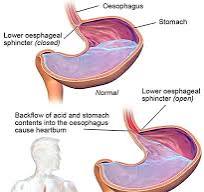HEALTH IS WEALTH
INTRODUCTION,
An obvious but yet profound truth. One sickness can drain a
lifetime of savings, leaving individuals and families in distress. While modern
medicine has made remarkable strides in diagnosing and treating diseases, many
health conditions continue to defy medical solutions, pushing us to explore
alternative approaches.
Natural remedies have been a cornerstone of healing for centuries, long before
the advent of modern pharmaceuticals. Across cultures and civilizations, people
have relied on nature’s gifts—herbs, roots, fruits, and holistic practices—to
restore health and vitality. While this encyclopedia does not seek to undermine
the importance of medical science, it aims to complement it by shedding light
on time-tested natural solutions. It encourages further research into the power of
nature in healing, offering insights into remedies that have provided relief to
countless individuals.
Beyond addressing sickness and disease, true wellness involves prevention and
proactive care. This is why this encyclopedia also includes exercises and fitness
routines designed to strengthen the body, boost immunity, and enhance overall
well-being. A balanced lifestyle, proper nutrition, and regular physical activity
are essential components of good health, and this resource serves as a guide to
achieving and maintaining it naturally.
NATURAL REMEDIES FOR ACHE
Acne is a common skin condition caused by factors such as excess oil
production, clogged pores, and bacterial overgrowth. While natural home
remedies can help alleviate mild to moderate acne symptoms, consultation with
a dermatologist is recommended for severe or persistent cases.
Here are the Natural Remedies for Acne:
1. Tea Tree Oil
Mechanism: Tea tree oil possesses antibacterial and anti-inflammatory
properties that can help reduce acne lesions and prevent new breakouts.
Preparation: Dilute one part tea tree oil with nine parts water or a carrier
oil such as jojoba or coconut oil.
Usage: Apply the diluted solution to affected areas using a cotton ball or
swab. Leave it on for 20–30 minutes before rinsing off. Use this treatment
1–2 times daily.
2. Honey and Cinnamon Mask
Mechanism: Honey has antimicrobial properties, while cinnamon
exhibits anti-inflammatory effects, making this combination effective in
combating acne.
Preparation: Mix two tablespoons of honey with one teaspoon of
cinnamon powder to form a paste.
Usage: Apply the paste as a facial mask and leave it on for 10–15
minutes before rinsing off. Use this remedy 1–2 times a week.
3. Aloe Vera
Mechanism: Aloe vera contains anti-inflammatory and soothing
properties that help reduce redness and inflammation associated with
acne.
Preparation: Extract the gel from an aloe vera leaf.
Usage: Apply the gel directly to acne-prone areas and leave it on for 15–
20 minutes before rinsing off. Commercial aloe vera gel products can also
be used.
4. Apple Cider Vinegar
Mechanism: Apple cider vinegar has antimicrobial properties and helps
balance the skin’s pH levels.
Preparation: Dilute one part apple cider vinegar with three parts water.
Usage: Apply the diluted solution to the face using a cotton ball, leave it
on for 10–20 seconds, then rinse off. Conduct a patch test before use, as
apple cider vinegar may be harsh on the skin. Start with a low
concentration and increase gradually based on skin tolerance.
5. Baking Soda Scrub
Mechanism: Baking soda is a gentle exfoliant that helps remove dead
skin cells, unclog pores, and reduce acne.
Preparation: Mix 1–2 teaspoons of baking soda with enough water to
create a paste.
Usage: Gently massage the paste onto the skin in circular motions before
rinsing off with water. Use this scrub 1–2 times a week.
6. Green Tea
Mechanism: Green tea is rich in antioxidants and has anti-inflammatory
properties that help reduce inflammation and fight acne-causing bacteria.
Preparation: Brew a cup of green tea and allow it to cool.
Usage: Apply the cooled green tea to the skin using a cotton ball or spritz
it on. Leave it on for 10–15 minutes before rinsing off. Regular
consumption of green tea may provide additional skin benefits.
Key Considerations:
These natural remedies can be effective for mild to moderate acne, but results
may vary. Consistency and patience are key when using natural treatments.
For severe or persistent acne, consult a dermatologist for professional guidance and
treatment options. Most of these remedies are available at health food stores or
local markets.



